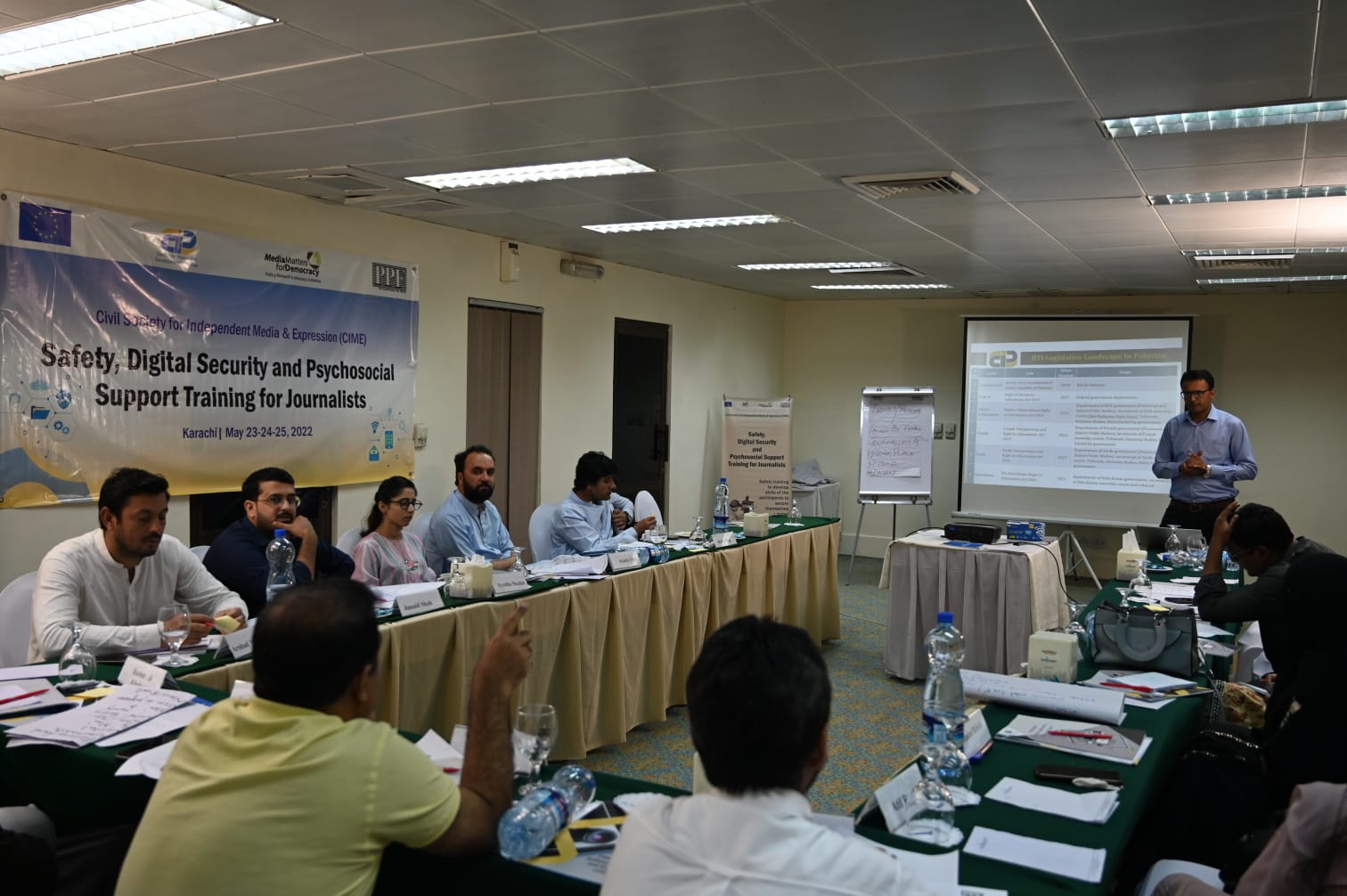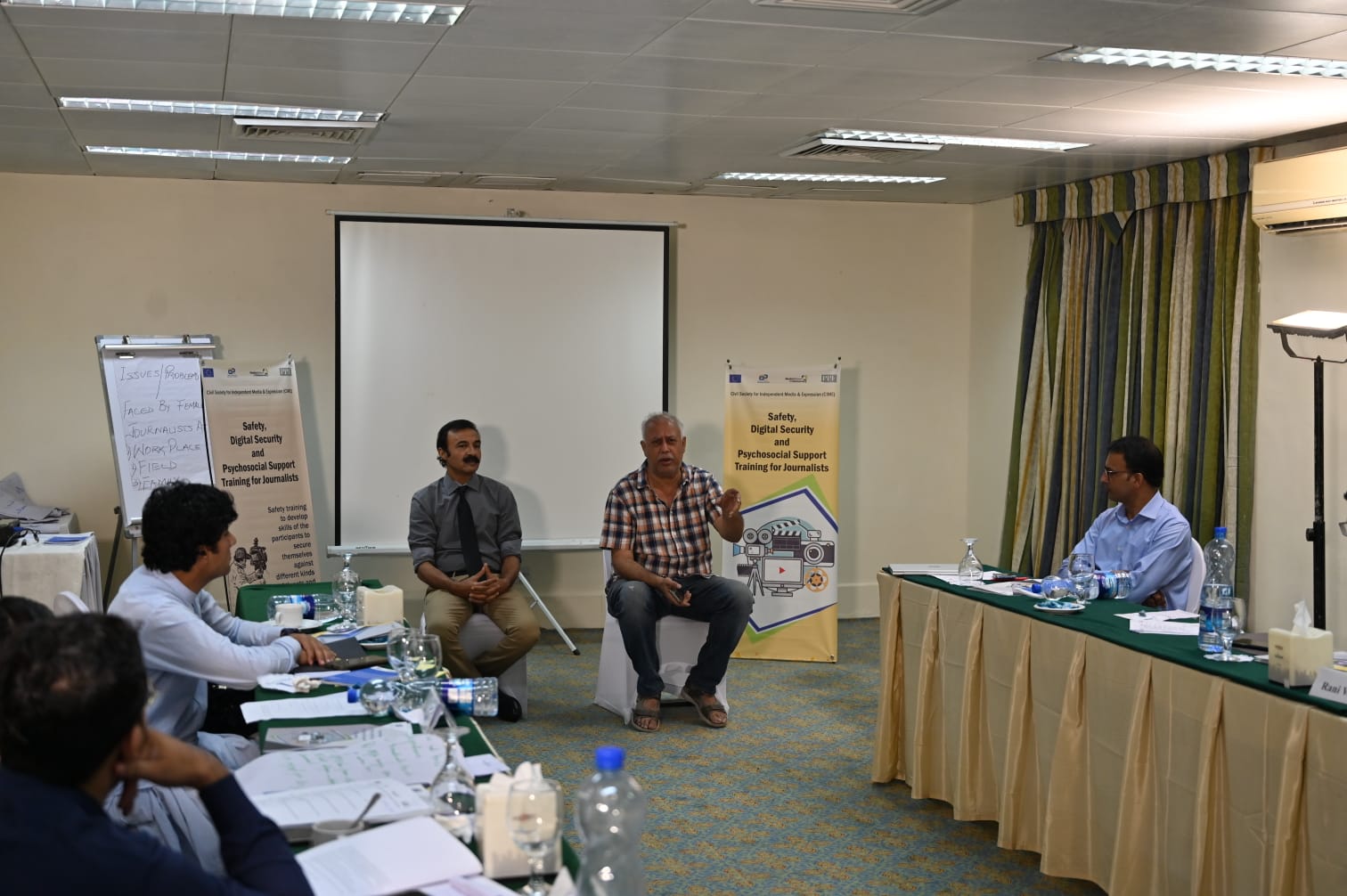Journalists Asked To Utilize RTI law For Reporting In Risky Areas
News Desk
Islamabad: Trainers at a workshop were in consensus that speedy and effective legislation is needed to protect journalists against risks to their safety as at the present, there is no such specific law.
This was one of the principal outcomes of the training workshop for Journalists organized by Centre for Peace and Development Initiatives (CPDI) on, “Safety, Digital Security and Psychosocial Support” with the financial assistance of the European Union (EU), in Karachi.
The training workshop was attended by senior and fresh journalists from various districts of Sindh and Balochistan.

Pakistan is reported as one of the most dangerous countries for the journalists operating in the field, making journalism one of the most dangerous professions. The journalists working on crimes, political and corruption beats are relatively more exposed to risks.
While explaining the effectiveness of the law on the Right to Information, CPDI Project Coordinator Syed Raza Ali explained the importance of the Right to Information for investigative journalism. Ali also explained the process of filing information requests and procedures for lodging complaints.
The trainer, Ashfaq Khan, explained constitutional provisions regarding the journalists’ safety and whilst maintaining that the protection and impunity in crimes against journalists need the immediate attention of the government.
The training sessions consisted of various modules and practical exercises around the necessity of objectivity in reporting, risk assessment, preparing proof of life documents, first aid, tips for coping with untoward situations and ensuring digital security.
The workshop also discussed national and international legal frameworks for the protection of journalists with reference to Articles 10, 19 and 19-A of the constitution of Pakistan, related to arbitrary detention, freedom of speech and right of access to information respectively.
Rani Wahidi, a multimedia journalist from Balochistan, emphasized that such training sessions will prove helpful in ensuring safety and security in the field reporting whilst the networking among journalists through these forums will generate a collective voice advocating for better legislation for journalists’ protection and security.

Behram Baloch, another participant in the training, said, “Organizing such training sessions for young journalists not only helps to enhance their professional skills but also helps them to cope with unsafe and stressful situations during the course of duty.”
Rimsha, a participant, called on the journalists’ organizations to hold similar sessions for young journalists in order to ensure their safety and protection in the field.
Participant Ayesha Shaikh commended the efforts of CPDI and the European Union for organizing such training sessions.

Journalists should be able to pursue their storylines and investigative reporting free of intimidation, harassment, coercion and risks to their lives and careers. This is a fundamental aspect of ‘ free journalism’ , the ability to write and report objectively.